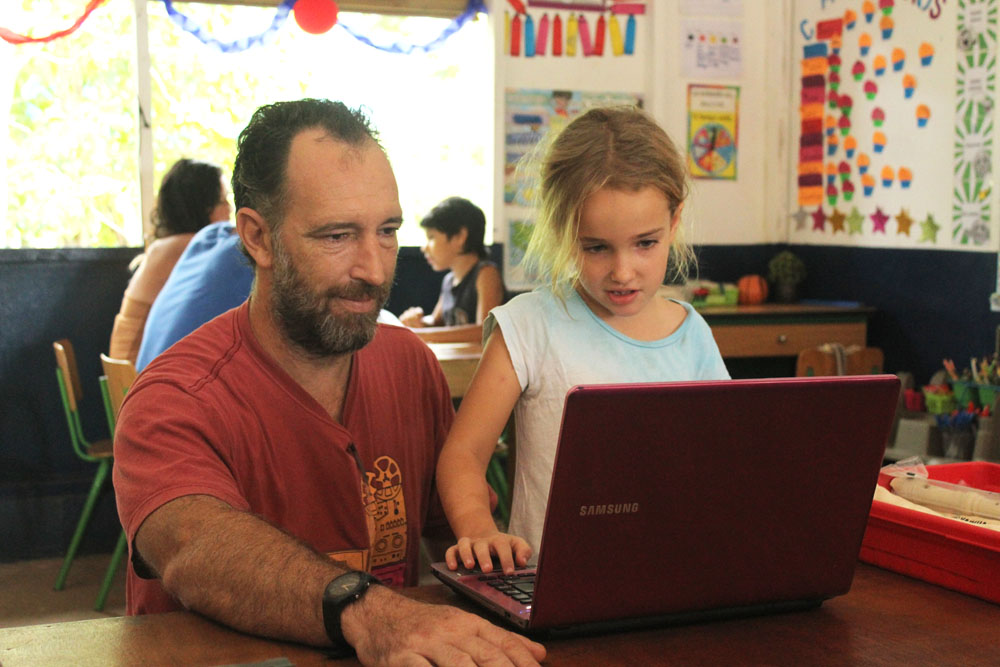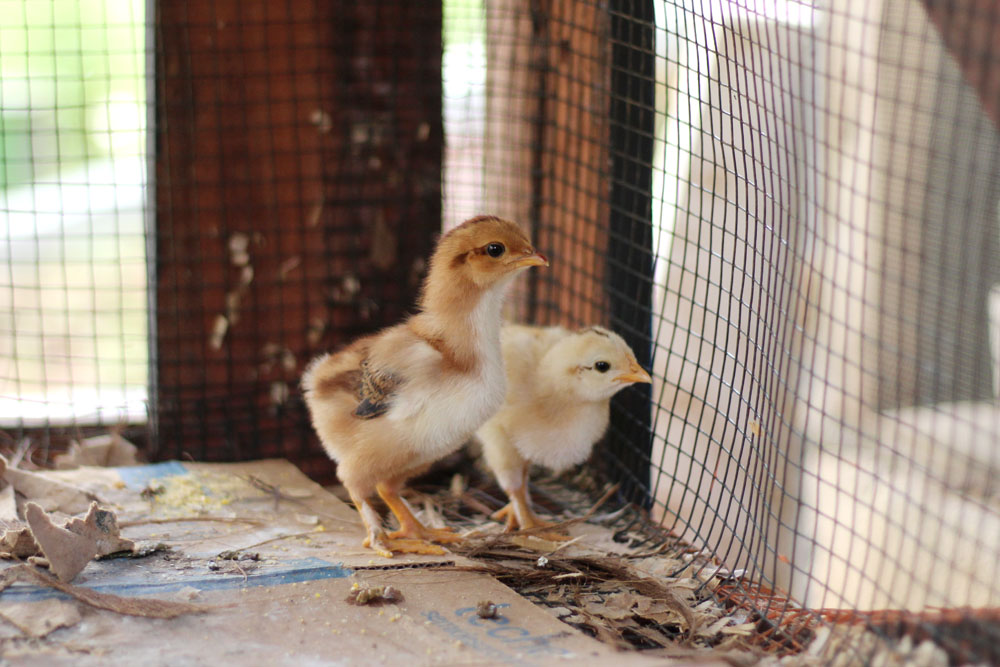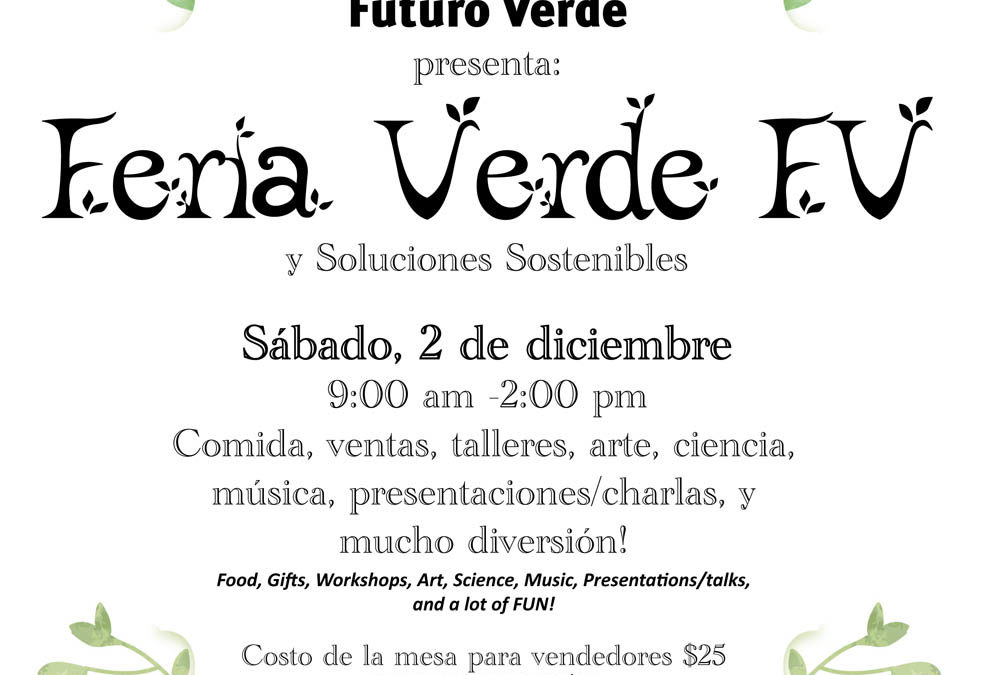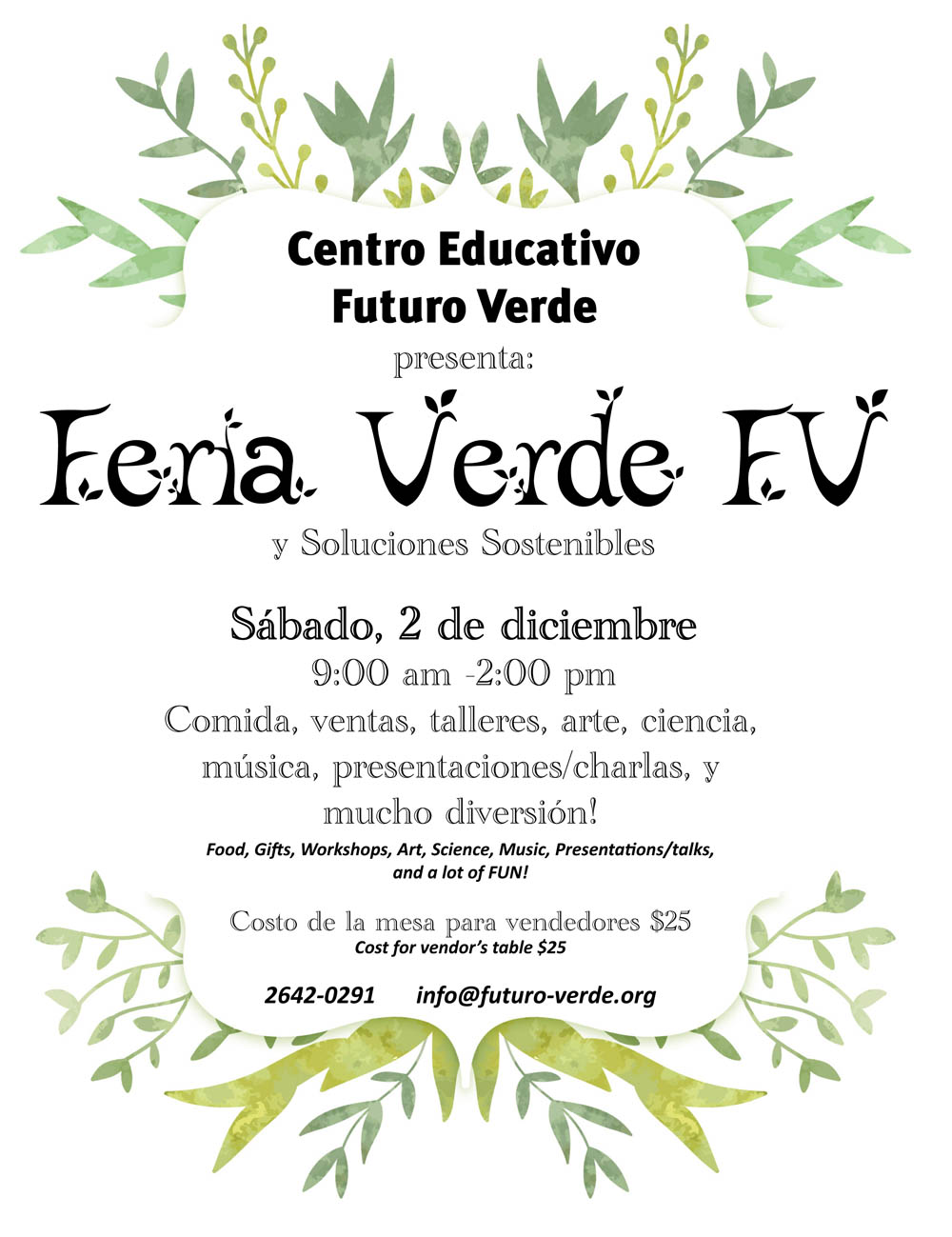
by Katie Chiaverini | Jul 23, 2018

Mark your calendars, student-led conferences are coming up on September 10, 2018. Please plan on having your child present to lead the conference. Student-led conferences are an integral part of the Futuro Verde culture and have many different benefits for both parents and students alike.
As parents, your role in the conference is to listen to your child as they explain their successes, growths, reflections, and goals for the future. Then, it is also important for you to give your child feedback on areas of growth that you have seen and wish that you would like to see them accomplish.
The student’s role is to be able to express their own growth within the learning process through work samples, reflections, and goal setting. We expect students to share their information in an organized manner, be good communicators, and be able to answer your questions as they arise to better explain their learning.
Different from parent-teacher conferences, the teacher’s role is mainly to help facilitate the conference, with the student as the leader. Teachers will guide students through the reflection process as they prepare to share their learning in this specific format. Because they play a more passive role in this type of conference, you might find that the teacher will facilitate several student-led conferences at once.
At Futuro Verde, we strive for our students to be critical thinkers, effective communicators, independent, and reflective. Research shows that student-led conferences are one way to actively engage students in the learning process and provide them opportunities to develop the aforementioned traits. Student-led conferences also allow parents to play a more active role in their child’s education by offering the time and space to share learning and ask clarifying questions. Futuro Verde welcomes all families to take part in this special day to share glows and grows of each and every student.

by Katie Chiaverini | Apr 28, 2018

Los seres vivos crecen y cambian. Los estudiantes de primer y segundo grado de Futuro Verde están viendo esta innegable verdad con sus propios ojos a través de nuestra nueva adición … los pollitos. Empezamos con solo dos gallinas con la esperanza de poder presenciar todo el ciclo de vida a lo largo del tiempo. Ahora, con el apoyo del personal de Futuro Verde, el programa de educación ambiental y los estudiantes de secundaria, hemos podido crear un área más grande y segura para más gallinas. Los alumnos de primer y segundo grado visitan las 7 gallinas, de diferentes edades y tipos, un gallo y los dos pollitos varias veces a la semana.
Según Mark Ritchie, Ph.D., Director Ejecutivo del Instituto Internacional de Estudios para el Desarrollo, “el aprendizaje experimental – aprender haciendo y reflexionando – presenta al educador una herramienta que puede involucrar al alumno con material complicado y ayudar a ilustrar la complejidad de los sistemas ecológicos y humanos del mundo real.” Esto es exactamente lo que estoy viendo en nuestros estudiantes: ¡el compromiso se combina con el aprendizaje de estándares científicos complicados! La primera pregunta del día suele ser “¿cuándo podemos ver las gallinas?”
Corresponde a los alumnos proporcionar agua fresca, sobras de comida de la cocina y maíz partido a las gallinas. Estamos aprendiendo qué alimentos les gustan más a través de la observación. Los estudiantes también están aprendiendo cómo interactuar con las gallinas de forma segura al mantener la calma y esperar a que los gallinas se acerquen a ellos; la paciencia es a menudo una proeza para los niños pequeños, pero están teniendo éxito. A través de la observación y la reflexión, estudiamos las partes del cuerpo y sus funciones, los patrones de comportamiento, la herencia de los rasgos, las etapas de desarrollo dentro del ciclo de vida y aplicamos habilidades de pensamiento crítico. Estos son temas complicados para niños de seis a ocho años, pero al usar los pasos básicos del aprendizaje experiencial: actuar, reflexionar, replantear y aplicar, los estudiantes logran comprender estos conceptos y resolver cualquier problema que pueda surgir con las gallinas. Más allá de los estándares de la ciencia, el desarrollo del lenguaje que proviene de esta experiencia práctica es sorprendente: el desarrollo del vocabulario que comienza de forma oral en las interacciones con las gallinas a la aplicación escrita en sus reflexiones diarias.
Si usted se topa con un estudiante de primer o segundo grado de Futuro Verde, preguntele por las gallinas … ¡Estoy segura de que tendrán mucho de que hablar!

by Katie Chiaverini | Apr 28, 2018

Living things grow and change. Futuro Verde first and second graders are seeing that first-hand through our new addition…the chickens. We started out with just two hens in hopes that we could see the whole life cycle over time. Now, with support of Futuro Verde staff, the environmental education program, and high school students, we have been able to create a larger, safer area for more chickens. The first and second graders get to visit the ten chickens, a mix of ages and types, including a rooster, and two little chicks several times a week.
According to Mark Ritchie, Ph.D., the Executive Director of the International Development Studies Institute, ¨Experiential learning — learning by doing with reflection — presents the educator with a tool that can both engage the learner with complicated material, and help illustrate the complexity of real world ecological and human systems.¨ This is exactly what I am seeing in our students – engagement paired with learning complicated science standards! Usually, the first question of the day is “when do we get to see the chickens?!”
The students are responsible for providing fresh water, leftover food from the kitchen, and cracked corn for the chickens. We are learning what items they like best through observation. The students are also learning how to safely handle the chickens by staying calm and waiting for the chickens to approach them – patience is often a difficult feat for such young children but they are succeeding! Through observation and reflection, we are looking at body parts and their functions, patterns of behavior, inheritance of traits, the stages of development within the life cycle and applying critical thinking skills. These are complicated topics for six to eight-year-olds, but when using the basic steps of experiential learning: Act, Reflect, Reframe and Apply, the students are able to grasp these concepts and problem solve any issues that might arise with the chickens. Beyond the science standards, the language development that comes from this hands-on experience is amazing – vocabulary development which begins orally in the interactions with the chickens to written application in their journal reflections.
If you run into a Futuro Verde first or second grade student, ask about the chickens…I am sure they will have a lot to talk about!

by Katie Chiaverini | Nov 30, 2017

El gran día está por llegar…¡la primera anual Feria de Soluciones Sostenibles patrocinado por los estudiantes de Futuro Verde es este sábado, 02 de diciembre de 9am a 2pm! Todos nuestros estudiantes, desde preescolar hasta 10º grado, se han esforzado desarrollando proyectos innovadores y ahora están listos para educar a las familias, a los amigos y a los miembros de la comunidad acerca de sus temas de solución sostenible, con énfasis en asuntos locales.
Nuestra comunidad escolar se unirá este día para compartir ideas de cómo mejor proteger a nuestro medio ambiente y cómo vivir una vida saludable; haciendo que la sostenibilidad sea una parte de nuestra vida cotidiana.
Durante los últimos meses, los estudiantes han estado haciendo preguntas, investigando, entrevistando, planeando, discutiendo, diseñando, creando, construyendo, mejorando y desarrollando en base a su tema elegido, todos los cuales se basan en un tema grande compartido: la sostenibilidad. El involucramiento de los estudiantes y su compromiso con el proyecto ha sido impresionante, especialmente en cómo se han relacionado con sus profesores, los voluntarios, los padres de familia, sus compañeros, los especialistas y con la naturaleza misma. La Feria de Soluciones Sostenibles es un proyecto compartido desde su primer paso hasta el momento de la presentación final. Desde manitas pequeñas aplastando el papel reciclado en el agua hasta manos grandes trabajando con palas la tierra lodosa para mezclar abono adentro, ¡es evidente que la búsqueda de las soluciones sostenibles no solo demanda el pensamiento crítico, sino que también el trabajo duro y montones de determinación!
La belleza de la sostenibilidad es que se puede aplicar a lo que sea. Abarca todo. Desde un problema pequeño y local hasta un asunto grande y global que comparten muchas personas, las soluciones sostenibles siempre son una posibilidad. Mientras que muchos de nuestros estudiantes se han enfocado en un tema local; sus soluciones tienen aplicaciones globales. Desde métodos para controlar plagas hasta la contaminación debido al plástico, desde la sobrepesca hasta la sobrepoblación de animales domésticos, desde un exceso de desechos hasta la marea roja..los proyectos de nuestros estudiantes son un gran ejemplo del dicho “pensar en lo global, actuar a nivel local”.
Este sábado, nuestros hijos serán nuestros maestros. ¡Prepárense para ser inspirados!

by Katie Chiaverini | Nov 30, 2017

The big day is almost here…the first annual Sustainable Solutions Fair hosted by Futuro Verde students on Saturday, December 2nd from 9am to 2pm! All of our students, grades pre-K through 11th, have been working very hard on developing innovative projects and they are ready to educate their families, friends, and community members on sustainable solutions to local issues.
Our school community will gather together on this day to share ideas about how we can protect our environment and lead a healthy life; making sustainability a part of our everyday lives with each action we take.
Over the last few months, the students have been asking questions, researching, interviewing, planning, discussing, designing, creating, building, improving, and developing their chosen topics based around one shared theme: sustainability. The level of engagement and direct involvement the students have had with teachers, volunteers, parents, peers, specialists, and nature itself is impressive. The Sustainable Solutions Fair is definitely a joint project from start to finish. From little hands squishing recycled paper into water to large hands shoveling clay-ridden earth to mix with compost, it is evident that searching for sustainable solutions not only requires critical thinking, but hard work and a lot of grit!
The beauty of sustainability is that it can be applied to anything. It is all encompassing. From a small, local problem to a large, global issue shared amongst many, sustainable solutions are always a possibility. While many students have focused locally, their ideas can be applied globally. From methods of organic pest control to plastic pollution, from over fishing to domestic animal overbreeding, from excess waste to red tide…our student projects truly embody the term “think globally, act locally.”
On this day, our children will be our teachers. Get ready to be inspired!






